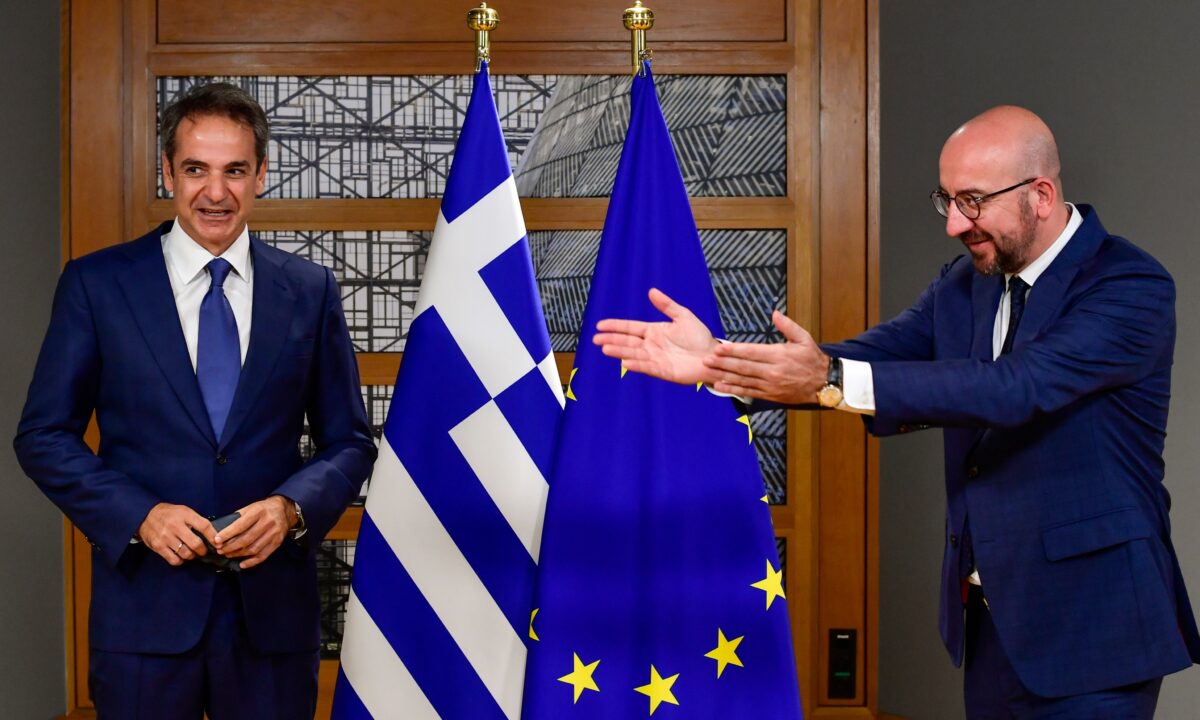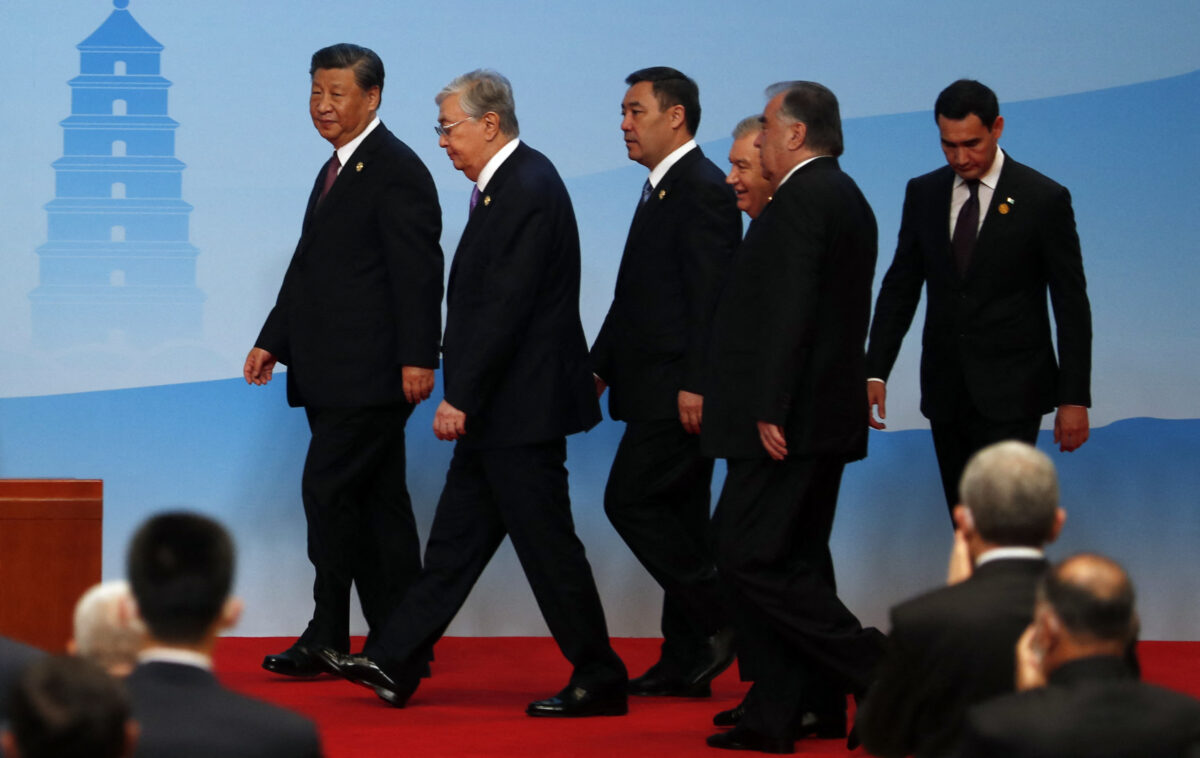


Commentary
Major, separate transformations are emerging in the domestic political landscapes of Egypt, Israel, Lebanon, Syria, Turkey, Cyprus, and Greece.
These, coupled with transformations in “great power” influences in the broader Eastern Mediterranean region, will shape the European energy markets, and the relative influence of the United States, Russia, the People’s Republic of China, and Iran.
Severe dislocations in the political framework of the European Union—and particularly France and Italy, as Mediterranean powers, but also Germany—mean that efforts to shape a cohesive Mediterranean Basin trading system, so plausible less than a decade ago, must now be looked at anew. But within that framework, the potential for greater energy (mainly gas) deliveries from the Mediterranean to the EU may well outweigh deliveries of Central Asian oil and gas. But this only matters if the EU wakes up to the reality that it cannot survive on so-called “renewable” energy alone.
Within the Mediterranean Basin itself, the prospects for a stable Libya have largely been dashed by the exhaustion of the major combatants in the civil war there, which began in 2011 when the United States attempted to intercede in Cyrenaica, thus thwarting the restoration of a coherent Libyan framework, on the lines of the 1951 U.N. Constitutional model. Significantly, Washington in 2011 strenuously resisted the restoration of the one constitutional model that unified Libya—under King Idris I and the Senussi clan—so determined was the U.S. State Department that it would not allow the restoration of a monarchy.
Significantly, the U.S. State Department played a key rôle, for the same reason, in ensuring that the Afghanistan monarchy would not be restored following the initial defeat of the Taliban Government, despite requests by the Afghan elders for a restoration to occur. There is sound reason to believe that Afghanistan could have stabilized had King Zahir Shah been reinstated, and that would have transformed the region, including Central Asia, transforming a significant portion of the global strategic balance.
Similarly, the restoration of a unifying monarchy in Libya—which once worked because the Senussi monarchy was not from one of the 140 Libyan tribes and avoided tribal politics—would have profoundly constrained the human trafficking and illegal migration from North Africa to Europe.
But, in one sense after the 2011–2012 period, the overarching characteristic of the new Eastern Mediterranean matrix is that it is shaped by the exhaustion of the players.
None of the regional actors, with the possible exception of Israel, can afford to divert resources to manage the Eastern Mediterranean transformation. Israel has been working to expand its Abraham Accords network to embrace closer ties with, for example, Saudi Arabia. All of this touches, of course, on the Mediterranean to Red Sea linkage via Egypt’s Suez Canal, and the end of the war in Yemen … and the start of new conflicts in the Horn of Africa and possibly across the Maghreb.
So, in another sense, all the factors impacting the relationships of regional states with each other and with traditional external powers have been changed. Not much from even the recent past can be assumed to still be valid.
Russia’s preoccupation with the war in Ukraine, and the subsequent implosion of its Wagner private military contractor force, may also impact the ability of Russia to aid its regional allies in Libya, Syria, Ethiopia, Eritrea, and possibly in Sudan and Mali (in West Africa). It is worth raising the question as to the future of Wagner Group, since it has partially been re-based in Belarus rather than entirely disbanded.
Clearly, the Ukraine component of Wagner was being integrated into the formal Russian Armed Forces in Ukraine, or in the Russian Southern Military District, but it is clear that Wagner remains active as a paid contractor force in Syria, Mali, and possibly the Horn of Africa.
Western media and intelligence reporting has ignored Wagner’s rôle outside Ukraine, and the reality that Moscow still needs its capabilities elsewhere in the world. The fact that Wagner chief Yevgeny Prigozhin was, in early July 2023, given back much of Wagner’s military equipment indicates that Wagner remains a key private military contractor to the Russian Government, but now focused outside of Ukraine.
Meanwhile, the political-economic collapse of Türkiye can no longer be ignored by its former allies, who face a dilemma because they cannot make the case for a viable NATO—if NATO’s mission (a relic of the first Cold War) remains the containment of Russia—if Ankara is closer to Moscow than it is to Washington.
Türkiye’s inflation rate, after the May 29, 2023, final round of the presidential election, cooled from an official 85 percent in late 2022 to around 38 percent per annum in June 2023. But that was not enough: the population has become desperate. The Turkish lira continued to slide, with a rate of 26.01 to the U.S. dollar by early July 2023; it had been 18 to the dollar six months before, and that was already unacceptable. The Turkish economy has tanked.
It is probable that, for both NATO and Russia, an economically neutered Türkiye is desirable, limiting its independent capacity to intervene in regional affairs.
What is significant in this transformation of the region, plus the Persian Gulf-Arabian Peninsula-Red Sea area is just how little Beijing has been active, rather than how much. This, to a degree, reflects the constraints facing the People’s Republic of China. Beijing is active, but not as active and effective as could have been expected.
A fresh approach is needed to understand the “new Mediterranean.”
Views expressed in this article are the opinions of the author and do not necessarily reflect the views of The Epoch Times.

